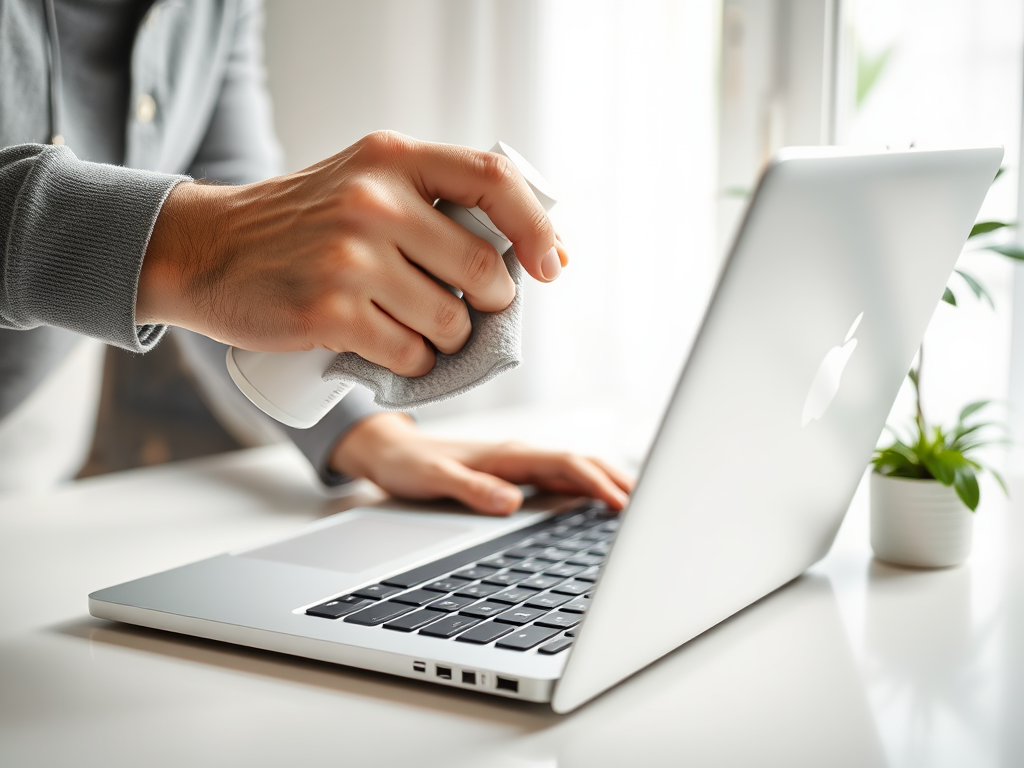In an era where technology is at the core of virtually every activity, the significance of computer hygiene cannot be overstated. Just as we prioritize personal hygiene to maintain our health, regular maintenance of your computer system is crucial for optimal performance. Ignoring this aspect can lead to a decline in functionality, slower speeds, and even security vulnerabilities. Therefore, understanding computer hygiene is not merely beneficial but essential for sustaining the health of your digital assets. This article will delve into the best practices, common pitfalls, and significant benefits of maintaining good computer hygiene. By the end, you’ll realize that a little diligence can go a long way in keeping your system running smoothly.
When we talk about computer hygiene, we’re essentially addressing the myriad of practices that can keep your computer device performing at peak efficiency. This notion encompasses everything from software updates to physical cleaning. Many users often overlook the impact that simple maintenance tasks can have. However, failures to implement these routines can lead to serious implications, both short-term and long-term. By implementing a disciplined approach to computer care, users can avert these pitfalls and foster a productive computing environment. Let’s explore how these practices can be both effective and straightforward.
The Basics of Computer Hygiene

Implementing good computer hygiene starts with a clear understanding of its fundamental practices and essentials. These practices can significantly enhance the performance of your computer, extend its life, and protect your data. Here are some key practices that every user should adopt:
- Regular Software Updates: Keeping your operating system and applications up-to-date protects against vulnerabilities and ensures that you benefit from the latest features.
- Antivirus and Malware Protection: Installing reputable security software is paramount. It helps to detect and neutralize potential threats lurking around your computer.
- Routine Backups: Regularly backing up your data can save you from devastating losses in the event of a system crash or accidental deletion.
The Impact of Poor Computer Hygiene on Performance

Neglecting computer hygiene can lead to various issues that will eventually degrade your computer’s performance. The consequences can be immediate, or they can compound into more serious problems over time. It’s essential to understand these drawbacks fully to appreciate the need for regular maintenance. When users let computer hygiene slip, they often experience slow performance. Files can pile up, leading to systems working harder than necessary.
Besides slow speeds, frequent crashes can also occur. Many users experience this when malware quietly infiltrates their systems, causing instability. Additionally, the risk of data loss looms large without frequent backups, which can lead to significant setbacks for both personal and professional endeavors. It’s a scenario no one wants to face, but without the implementation of good habits, it becomes all too common.
Benefits of Maintaining Good Computer Hygiene
Investing time in maintaining good computer hygiene brings numerous rewards. Enhanced computer performance is one of the most substantial benefits users can experience. Improving speed and responsiveness often leads to a more enjoyable computing experience, whether you’re browsing the web, playing games, or handling important tasks.
Moreover, another critical advantage is the increased lifespan of your device. Regular maintenance not only helps the software run more smoothly but also protects the physical components. When hardware is kept free from dust and debris, it operates more efficiently and is less prone to failure. The following table summarizes the benefits of maintaining good computer hygiene:
| Benefit | Description |
|---|---|
| Enhanced Performance | Boost speed and responsiveness of your applications. |
| Extended Lifespan | Lets your hardware last longer, saving money on replacements. |
| Data Security | Prevents data loss by ensuring frequent backups and system updates. |
Best Practices for Regular Maintenance
Establishing a routine for computer maintenance not only improves performance but also safeguards your data against unforeseen incidents. By following some straightforward steps, users can ensure their systems remain in optimal condition. The key actions to follow include:
- Scheduled Cleanup: Regularly deleting unnecessary files and uninstalling unused applications can help clear up space and improve efficiency.
- Disk Defragmentation: For HDDs, performing disk defragmentation at appropriate intervals can significantly optimize file access times, leading to quicker load times.
- Keyboard and Physical Cleaning: Dust buildup can not only interfere with performance but can also cause overheating and hardware damage. Use compressed air for the interior and a cloth for surfaces!
Conclusion
Maintaining good computer hygiene is essential for optimal performance and the longevity of your device. By embracing these practices into your routine, you can prevent many common issues and ensure that your computing experience remains smooth and enjoyable. From regular software updates and antivirus installations to ensuring physical cleanliness, every little bit counts. Take the time to invest in your digital health, and you will undoubtedly reap the rewards. A clean and well-maintained computer can not only boost your productivity but also provide peace of mind in a world where data security is paramount.
Frequently Asked Questions
- What is computer hygiene?
Computer hygiene refers to the set of practices that help maintain the cleanliness, security, and efficiency of a computer system. - Why is it important to update software?
Software updates often include security patches that protect against vulnerabilities, enhancing overall system safety. - How often should I back up my files?
It is recommended to back up your files at least once a week or more frequently for critical data. - What is the best way to clean my computer physically?
Use compressed air to clean out dust, and wipe surfaces with a microfiber cloth to maintain cleanliness. - Can poor computer hygiene lead to hardware damage?
Yes, neglecting physical cleaning can lead to overheating and other hardware issues, shortening the lifespan of your device.



